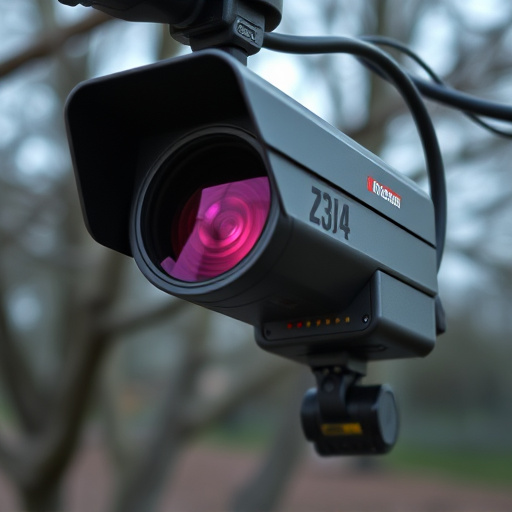In an era where technology raises privacy concerns, covert childcare monitoring devices in rental properties offer parents peace of mind but present ethical and legal challenges. Landlords must balance security needs with tenant privacy expectations, adhering to stringent local laws or facing legal repercussions. Open dialogue between all parties—parents, landlords, and tenants—is crucial to maintain a safe yet respectful home environment, ensuring transparency and striking the right balance between security and individual freedoms.
In today’s digital age, parents seeking childcare solutions often turn to covert childcare monitoring devices. While these tools offer peace of mind, their installation in rental properties raises complex issues regarding privacy rights and legal boundaries. This article delves into understanding hidden surveillance spots, exploring the perspective of parents while examining legal considerations for landlords. We uncover common hideaways for these devices and provide countermeasures to protect privacy for both parties.
- Understanding Covert Monitoring Devices: A Parent's Perspective
- Legal Considerations and Rental Property Rights
- Common Hideaways: Uncovering Secret Surveillance Spots
- Protecting Privacy: Countermeasures for Landlords and Tenants
Understanding Covert Monitoring Devices: A Parent's Perspective
As a parent, ensuring your child’s safety is paramount, especially within their living environment. With advancements in technology, covert childcare monitoring devices have emerged as tools to provide peace of mind. These devices, often installed in rental properties, offer discreet ways to keep an eye on children while they play or sleep. From small cameras hidden in toys to voice-activated recorders disguised as everyday objects, these surveillance spots can be virtually anywhere.
From a parent’s perspective, understanding the capabilities and limitations of such devices is crucial. While they provide real-time monitoring, ethical considerations arise when it comes to privacy and consent. It’s essential to know that installing covert monitoring in rental spaces may have legal implications and could potentially violate tenant rights. Therefore, open communication between parents, landlords, and tenants is vital to establish boundaries and ensure a safe yet respectful living environment.
Legal Considerations and Rental Property Rights
In many jurisdictions, the installation and use of covert childcare monitoring devices in rental properties are subject to strict legal considerations and regulations. Landlords must adhere to privacy laws that protect tenants’ rights, especially when it comes to their homes and personal spaces. The placement of such devices without proper notice or consent can be considered a violation of these rights. Tenants have the legal standing to expect privacy in their rental units, and any surveillance activities should be conducted with transparency and within ethical boundaries.
Rental property owners must ensure they understand and comply with local laws regarding surveillance. This includes informing tenants about any monitoring systems in place and obtaining consent when necessary. Using covert devices for childcare monitoring without proper legal safeguards can lead to serious consequences, including breach of contract and potential legal disputes. Therefore, it’s crucial for landlords to consult legal experts to navigate these complexities and ensure their practices are fair, ethical, and compliant with the law.
Common Hideaways: Uncovering Secret Surveillance Spots
In the quest to ensure safety and peace of mind, many homeowners and landlords have turned to covert childcare monitoring devices, often installing them in seemingly innocuous locations within their rental properties. These hidden surveillance spots, while intended for security purposes, raise privacy concerns among tenants. Common areas like smoke detectors, air conditioning vents, and even decorative items like potted plants can double as secret hideaways for such devices. Tenants may feel a sense of unease knowing that their living spaces are being continuously monitored, especially in places where they expect privacy, such as bedrooms or bathrooms.
Uncovering these hidden surveillance devices is a growing concern among advocates for tenant rights and data privacy. It’s crucial for both homeowners and tenants to be aware of the legal implications and ethical considerations surrounding covert monitoring. Understanding where these devices might be located can empower tenants to take precautions and even prompt landlords to adopt more transparent practices, fostering a balance between safety measures and individual privacy.
Protecting Privacy: Countermeasures for Landlords and Tenants
Protecting privacy is a delicate balance, especially in rental properties where both landlords and tenants have rights. With the rise of covert childcare monitoring devices, it’s crucial to understand their implications. While these devices may offer peace of mind for parents, they can also invade the privacy of renters, raising ethical concerns. Tenants have the right to expect a certain level of privacy within their homes, and landlords must ensure that any surveillance measures comply with local laws and respect this boundary.
To mitigate potential issues, both parties should take proactive steps. Landlords can implement clear policies regarding device placement and usage, ensuring transparency. Regularly updating tenants on these policies and providing an avenue for feedback can foster trust. Tenants, on the other hand, should be vigilant about their privacy rights and consider using anti-surveillance tools or devices to protect against covert monitoring. By staying informed and taking proactive measures, both landlords and tenants can navigate this delicate balance, ensuring a safe and private living environment.
In the digital age, understanding covert childcare monitoring devices and their prevalence in rental properties is essential. While these tools may offer peace of mind for parents, it’s crucial to balance privacy concerns with legal rights. Tenants have the right to expect a certain level of privacy within their homes, and landlords must adhere to ethical guidelines when considering surveillance. By becoming aware of common hideaways for secret surveillance spots, both parties can take proactive measures to protect personal space. Implementing countermeasures discussed in this article can help maintain a safe, private environment for all involved.
